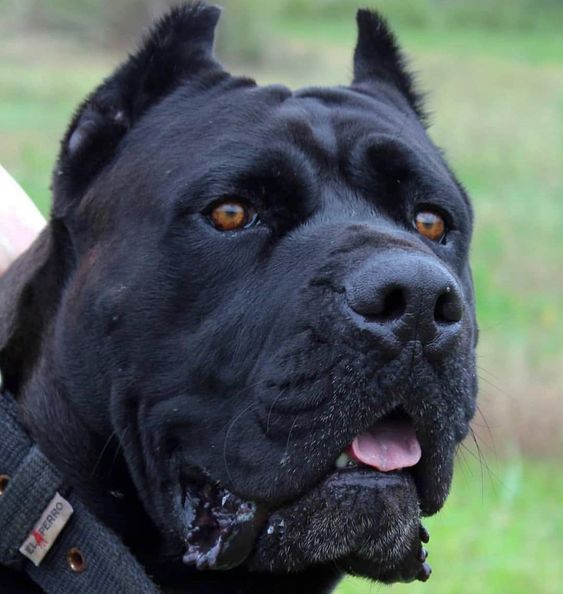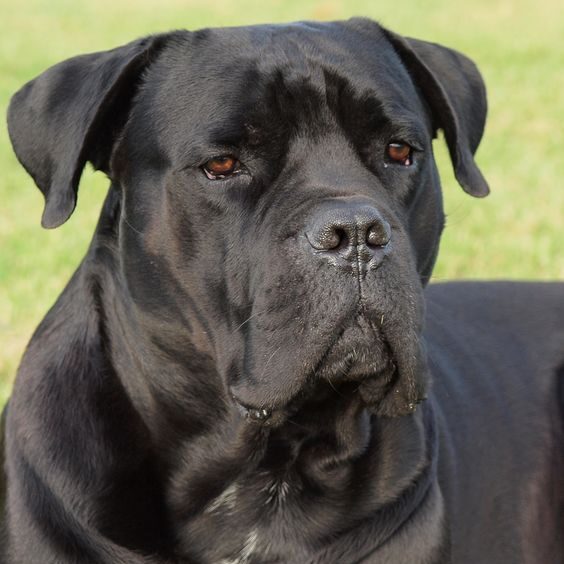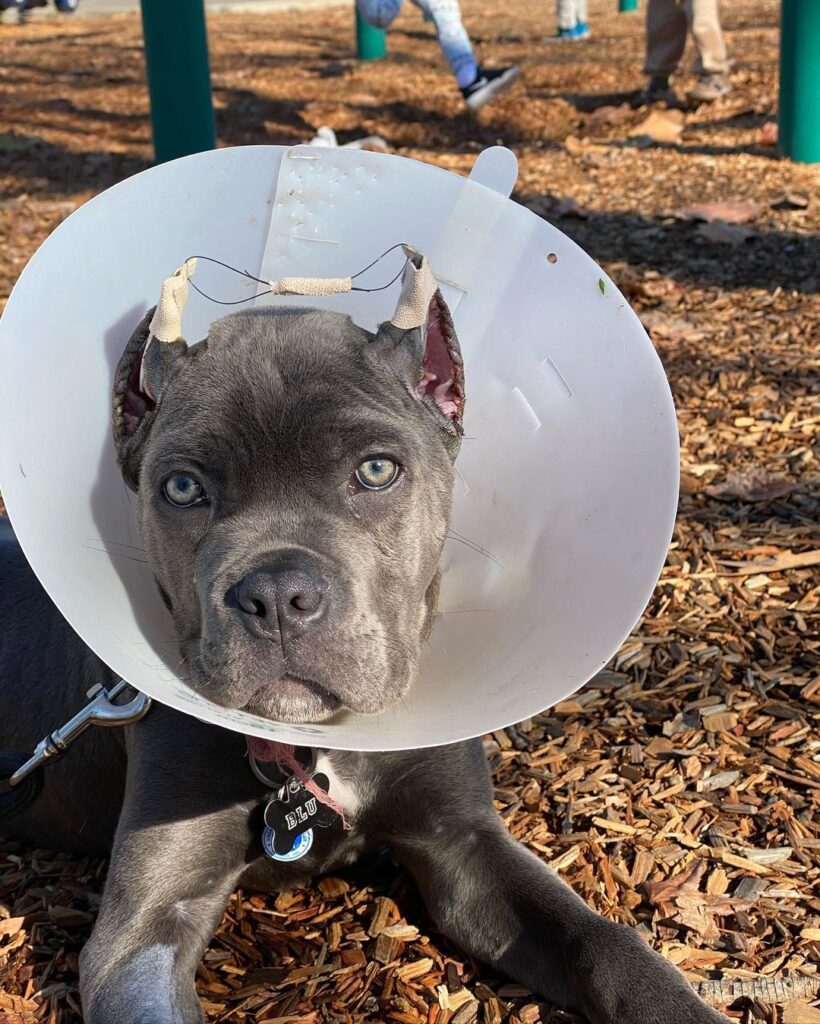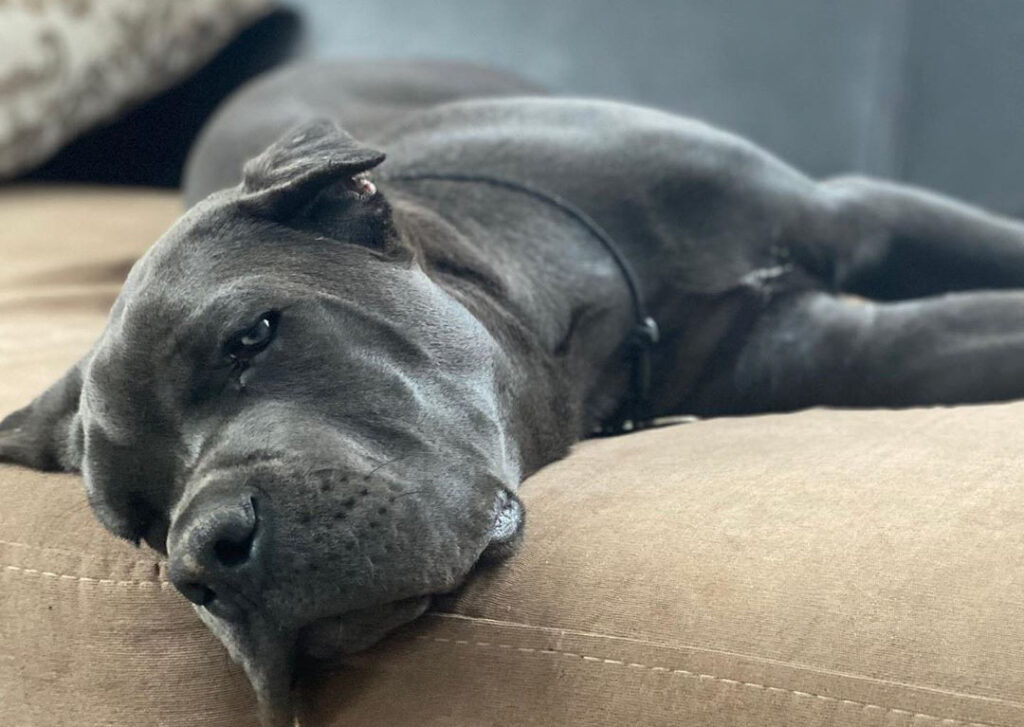
Cane Corsos are a popular breed of dogs known for their strong build and protective nature. However, when it comes to allergies, there are some important considerations for potential owners. Let’s explore the hypoallergenic nature of Cane Corsos, the causes of allergies in these dogs, how to treat such allergies, preventive measures, and how to determine if a Cane Corso is allergic before making a purchase.
What Makes Cane Corsos Hypoallergenic?
- Hypoallergenic dogs produce fewer allergens, reducing allergic reactions.
- Cane Corsos are not hypoallergenic due to shedding and dander.
- Shedding releases allergenic proteins from skin and hair.
- Dander, saliva, and urine can also trigger allergies in sensitive individuals.
Hypoallergenic dogs, a sought-after category among pet seekers, are known for their reduced allergen production, making them more suitable for individuals with allergies. These dogs emit fewer proteins that trigger allergic reactions, such as dander, saliva, and urine. Unfortunately, Cane Corsos do not fall into this hypoallergenic category. Despite their robust appearance and regal demeanor, these dogs are not exempt from causing allergic reactions in susceptible individuals.
The source of the issue lies in their shedding and dander. Shedding is a natural process for most dogs, but it can be problematic for those with allergies. Cane Corsos, although known for their short coats, still shed hair and skin cells that contain allergenic proteins. Even their saliva and urine can contribute to allergic responses. This means that while they may not be among the most allergenic breeds, they are not completely devoid of allergens. As a result, individuals predisposed to allergies might still experience discomfort and reactions in the presence of a Cane Corso.
Understanding Hypoallergenic Dogs
Hypoallergenic dogs have become a popular choice for families with allergies due to their reduced potential to trigger allergic reactions. These dogs are not completely allergen-free, but they produce fewer allergens compared to non-hypoallergenic breeds. The lower allergen production is attributed to specific coat types and less oil secretion from the skin.
Cane Corsos and Allergen Production
Cane Corsos, unfortunately, do not possess the characteristics that qualify them as hypoallergenic dogs. Despite their short coat, they produce allergens in the form of dander, saliva, and urine. These allergens can still cause allergic reactions in sensitive individuals, albeit potentially to a lesser extent than more allergenic breeds.
What Are the Causes of Allergies in Cane Corsos?
Allergies in Cane Corsos, like any other breed, can arise from various sources. Environmental allergens, such as pollen, dust mites, and mold, can trigger allergic reactions. Additionally, food sensitivities and genetic predispositions play a role in the development of allergies in these dogs.
Environmental Allergies
Cane Corsos can be sensitive to environmental allergens, just like humans. Pollen, dust, and mold can provoke allergic responses in susceptible individuals. Regular cleaning and maintaining a clean living environment can help reduce exposure to these allergens.
Food Sensitivities in Cane Corsos
Some Cane Corsos may develop allergies to certain foods. Common culprits include grains, dairy, and specific protein sources. Identifying and eliminating the problematic ingredients from their diet can alleviate allergic symptoms.
Genetic Factors in Allergies
Genetics also play a role in allergies. If a Cane Corso has a family history of allergies, it may be more prone to developing allergies itself. Understanding the dog’s lineage can help in predicting potential allergy risks.
How to Treat Cane Corso Allergies?
Addressing allergies in Cane Corsos requires a multi-faceted approach. The first step is to determine the cause of the allergies through various diagnostic methods. Once the cause is identified, appropriate treatment strategies can be implemented.
Allergy Testing for Cane Corsos
Allergy testing, which can involve skin tests or blood tests, helps pinpoint the specific allergens triggering the dog’s reactions. This information is crucial for effective treatment.
Dietary Modifications
If food allergies are suspected, transitioning the dog to a hypoallergenic diet or an elimination diet under the guidance of a veterinarian can help identify and alleviate food-related allergies.
Medication and Therapies
For environmental or non-food allergies, medications like antihistamines, corticosteroids, or immunotherapy may be prescribed. Regular grooming and bathing can also help minimize allergen exposure.
Tips to Prevent Allergies in Cane Corsos from an Early Age
Prevention is the best approach to managing allergies in Cane Corsos. By taking proactive measures from a young age, you can reduce the likelihood of allergies developing as the dog grows older.
Proper Hygiene and Grooming
Regular grooming is essential to minimize the accumulation of dander and loose hair. Bathing the dog with a hypoallergenic shampoo can also help reduce allergen levels.
Balanced Diet and Nutrition
Providing a balanced and high-quality diet can support the dog’s immune system and overall health, reducing the likelihood of developing allergies.
Controlled Exposure to Allergens
Gradually exposing the Cane Corso to potential allergens from a young age can help build tolerance. However, this should be done under veterinary supervision to avoid triggering severe reactions.
How to Check if a Cane Corso is Allergic Before Buying
If you or a family member has allergies and you’re considering adding a Cane Corso to your family, it’s crucial to assess the dog’s potential for causing allergic reactions before making a commitment.
Allergy Testing for Cane Corsos
Before purchasing a Cane Corso, inquire about allergy testing results from the breeder. This information can give you insights into the dog’s potential to trigger allergies.
Spending Time with the Dog
Interact with the dog you’re considering adopting for an extended period. Observe any signs of allergic reactions in yourself or your family members during and after your interaction.
Consulting with Breeders
Reputable breeders can provide valuable information about the dog’s lineage, potential allergenicity, and any history of allergies in previous litters. An open conversation with the breeder is essential.
By understanding the factors related to Cane Corsos and allergies, potential owners can make informed decisions and take necessary precautions to ensure a harmonious living environment for both the dog and the family.
Balancing Allergy Concerns with Cane Corso Love
As the decision to welcome a Cane Corso into the family looms, a delicate balance between affection and potential allergies emerges. These noble dogs, known for their protective instincts, offer companionship and loyalty. However, for those sensitive to allergens, navigating this decision requires a thoughtful approach.
Decoding the Allergy Equation: The Myth of Hypoallergenic

The term “hypoallergenic” often carries with it the promise of reduced sneezes and sniffles. Yet, for Cane Corsos, this promise remains elusive. Despite their majestic appearance and shorter coats, they produce allergens that can trigger reactions in susceptible individuals. Shedding, while natural, releases proteins and dander that can challenge the notion of a hypoallergenic dog.
FAQs
1. Are Cane Corsos hypoallergenic? No, Cane Corsos are not considered hypoallergenic due to their shedding and dander.
2. What are common allergens for Cane Corsos? Common allergens include pollen, dust mites, certain foods, and mold.
3. Can allergies in Cane Corsos be cured? Allergies can’t be cured, but their symptoms can be managed effectively.
4. How can I reduce allergens in my Cane Corso’s environment? Regular grooming, vacuuming, and using air purifiers can help reduce allergens.
5. Should I avoid getting a Cane Corso if I have allergies? It’s recommended to spend time with a Cane Corso before adopting to assess your sensitivity.
6. Can Cane Corso allergies develop over time? Yes, allergies can develop at any age due to changing sensitivities.
7. What are some signs of allergies in Cane Corsos? Signs include itching, redness, sneezing, and gastrointestinal issues.
8. How can I choose the right food for my allergic Cane Corso? Consult your vet for a hypoallergenic diet tailored to your dog’s needs.
9. Can allergies lead to more serious health problems in Cane Corsos? If left untreated, allergies can lead to skin infections and discomfort.
10. Can allergy medications have side effects for Cane Corsos? Some medications may have side effects; consult your vet for guidance.
Conclusion
In the world of dogs, where loyalty and companionship intertwine, the allure of a Cane Corso’s majestic presence is undeniable. Yet, as the curtain rises on the possibility of welcoming these regal canines into our lives, a backdrop of allergies emerges, challenging the harmonious coexistence we yearn for. Cane Corsos, known for their protective instincts and devotion, might also introduce allergens that trigger discomfort in sensitive individuals.
With over 4 years of devoted companionship with my beloved Labrador Retriever, Robin, I have cultivated a deep understanding and expertise in all things canine. From training and behavior to health and well-being.


